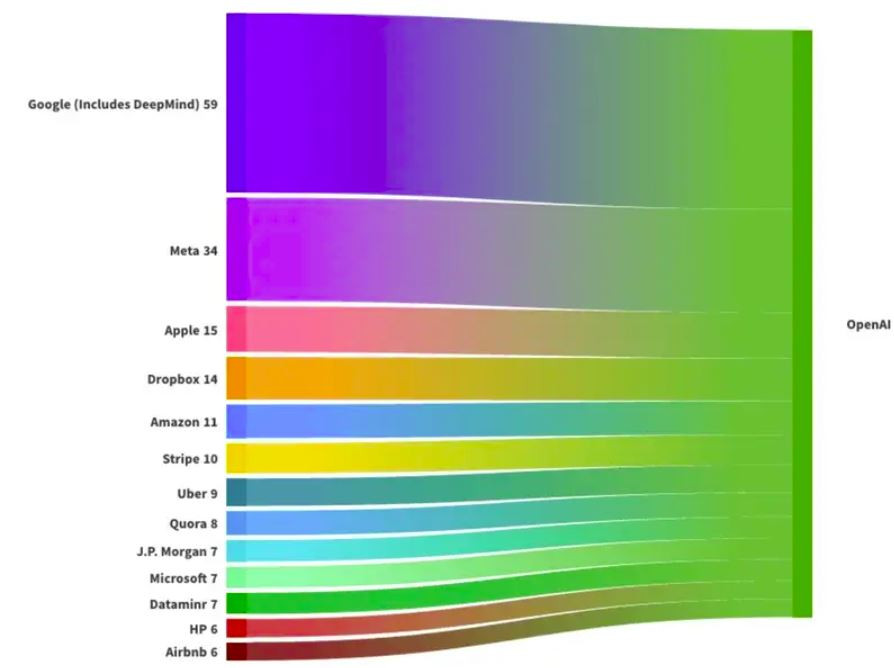It turns out that OpenAI, the developer of ChatGPT, has recruited dozens of former Google and Meta employees in its efforts to create an artificial intelligence chatbot.
Data from LeadGenius and Punks & Pinstripes show that some of the company’s more than 200 employees come from Google’s parent company Alphabet and AI research lab DeepMind. According to the data, OpenAI currently hosts about 59 former Googlers and about 34 former Meta employees. It also includes several former Apple and Amazon employees, according to the data.
Greg Larkin, CEO of Punks & Pinstripes, a network of Fortune 500 executives, said in a conversation with Insider that this data should be a “wake-up call” for big tech companies.
“At least, OpenAI is a sign that Big Tech is not optimizing its investment in employees, especially Google,” Larkin said. “A lot of AI talent is working on secondary products in innovation labs like Alphabet X. For many, this means they rarely see their work have a meaningful impact on the company’s core products or earnings.”
OpenAI’s leadership team is predominantly made up of former Big Tech employees, including several former Google, Meta and Apple employees, all companies with competing AI departments. Andrej Karpathy, Tesla’s former head of Autopilot, also recently joined the company.
 Number of employees OpenAI recruited from other tech giants
Number of employees OpenAI recruited from other tech giantsOpenAI was founded in 2015 as a non-profit organization. Several of the tech industry leaders, including former LinkedIn CEO Reid Hoffman, Elon Musk, and Peter Thiel, have committed $1 billion to the initiative, which is designed to develop artificial intelligence “in a way that best benefits all of humanity.”
The Information previously reported that OpenAI had hired several Googlers to do “significant” work at ChatGPT in the months prior to its November launch. Since then ChatGPT has amassed millions of users for its ability to do everything from writing articles to writing code.
An AI battle is currently taking place between OpenAI and Google, which has a partnership with Microsoft. Earlier this month, OpenAI’s CEO, Sam Altman, made a subtle reference to Google, which he called a “drowsy search monopoly.”